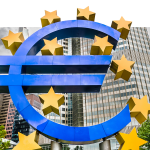Blockchain top ‘hard’ skill for 2020, finds LinkedIn

The most sought after tech skill in 2020 is blockchain, based on Linkedin‘s Top 10 ‘Hard Skills’ of 2020.
The professional social media platform measured demand by comparing user profiles with various hard and soft skills, and the frequency of those individuals getting hired.
As well as blockchain, other hard skills included things like cloud computing, analytical reasoning, AI and UX design. Soft skills included traits like creativity, collaboration and emotional intelligence.
As a result of the analysis, blockchain is concluded to be ranked first among skills in demand by organizations in the US, the UK, France, Germany, and Australia.
With blockchain, the ability “to store, validate, authorize, and move data across the internet has evolved,” turning to a safer and more secure process. Blockchain — a type of distributed ledger technology (DLT) — stores data permanently and bars unauthorized alteration from being made.
The report found that large firms such as IBM, Microsoft, Oracle, Amazon, and American Express are all keen on hiring professionals adept in blockchain to leverage these features.
Interestingly, blockchain was not listed on LinkedIn’s 2019 rankings of top hard and soft skills and this year, it beat other emerging technologies including artificial intelligence and cloud computing.
Popular job platform, Indeed, meanwhile, reported an increase of 26 percent of blockchain and crypto-related job postings from 2018 to 2019.
So what has caused the heightened interest in blockchain?
The rise of blockchain
The current trends suggest a rising number of businesses have started to recognize blockchain as a transformational technology, with the technology increasingly detaching from its association with cryptocurrency.
“Blockchain has emerged from the once shadowy world of cryptocurrency to become a business solution in search of problems,” said LinkedIn’s Bruce Anderson.
Early adopters of the technology have already dipped their feet into blockchain and identified unique ways to transform or enhance organizational processes, making use of blockchain’s advantages.
While initial adoption of blockchain was led by the finance sector – HSBC, for example, has shifted US$20 billion worth of assets to its blockchain-based custody platform to manage private holdings – it’s increasingly being used to track goods through the supply chain.
Boeing recently announced it was leveraging blockchain to organize and manage sales of its airplane parts. IBM and Farmer Connect have deployed it for a better view into produce from ‘farm to fork’, while Walmart has adopted it to trace the provenance of leafy greens, particularly in the case of contamination.
The list of blockchain initiatives is growing and spend on the technology will rise from US$208 million to US$2.6 billion from 2019 to 2025, according to ResearchAndMarkets.
This may justify the rise in demand for blockchain professionals, but concerns remain, and as Scott Thompson covered on TechHQ, cost remains a hurdle.
In his article, US retailers buy into blockchain, but hurdles remain, the cost of deploying blockchain networks and implementing the infrastructure prevents organizations, especially SMEs, from actively pursuing the initiatives.
Moreover, the grey area of regulations concerning the DLT is another factor.
Blockchain is not without weaknesses that may dissuade businesses to adopt vigorously, but in a bid to unleash the transformational capabilities, businesses are not willing to desert the possibilities.
“Skeptics, and there are many, raise concerns about the lack of standardized protocols, scalability, and excessive energy use,” the report stated. “The business world, however, is voting with its jobs, and companies seem to be saying that the potential is worth the gamble.”










